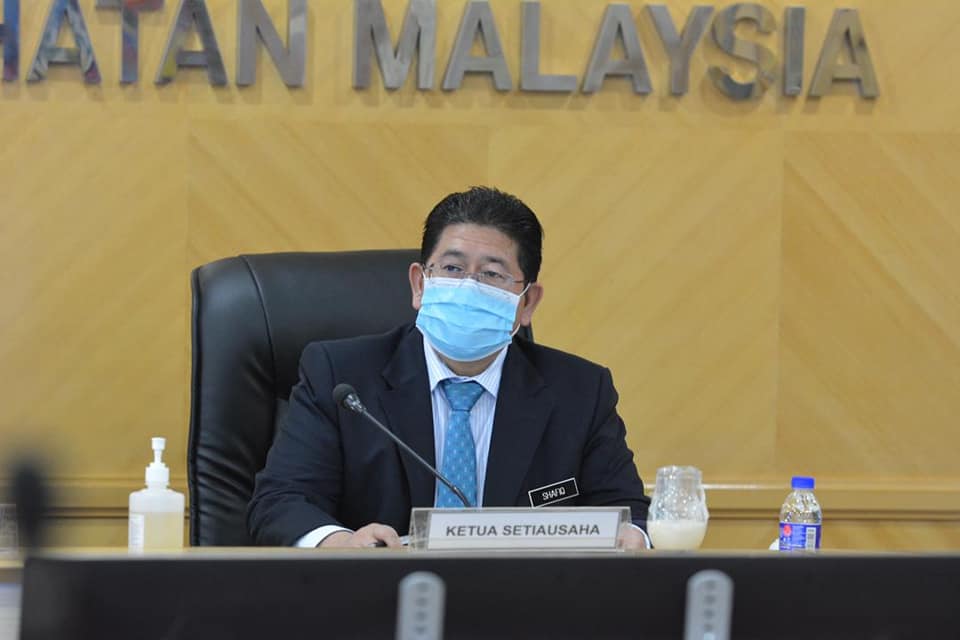KUALA LUMPUR, August 13 — The Ministry of Health (MOH) estimated today that about 15,000 non-Covid patients at public hospitals would be transferred to private hospitals by year end.
MOH secretary-general Mohd Shafiq Abdullah said 40 government hospitals and 76 private hospitals are currently involved in the outsourcing exercise nationwide amid the Covid-19 epidemic, in order to increase bed capacity in MOH hospitals for coronavirus cases in Categories Three, Four, and Five.
“Since the start of this initiative, 2,384 surgeries and procedures have been successfully carried out,” Mohd Shafiq told a press conference.
“This outsourcing exercise successfully reduced pressure on MOH hospitals, reduced the burden of MOH health workers, and shortened the wait time for non-Covid patients to get treatment.”
Mohd Shafiq also said a total of 1,310 non-Covid patients were transferred from MOH hospitals in Klang, Kuala Lumpur, Selayang, Ampang, Serdang, Shah Alam, Kajang, Sungai Buloh, and Putrajaya to private hospitals in the Greater Klang Valley region from July 5 to August 10.
Non-Covid patients were transferred, for example, from Tengku Ampuan Rahimah Klang Hospital (HTAR) to KPJ Klang Specialist Hospital and KPJ Selangor Specialist Hospital from July 5.
“The transfer of patients from HTAR to these private hospitals will enable MOH to prepare more beds for Covid-19 patients in Categories Three, Four, and Five for treatment in HTAR,” said the MOH secretary-general.
The outsourcing exercise in the Klang Valley for non-Covid patients involved procedures in cardiology (CABG, AVF, cardiac MRI), obstetrics and gynaecology (TAHBSO, laparascopic cystectomy/ adhesiolysis), neurosurgery (stereotactic radiosurgery, fractionated stereotactic radiosurgery and stereotactic radiotherapy), and general surgery (laparoscopic cholecystectomy and hernioplasty).
Shafiq added that MOH has received approval in principle from the Finance Ministry to enable teaching hospitals, particularly University Malaya Medical Centre (UMMC), to outsource non-Covid cases to create 150 beds in UMMC for Covid-19 patients.
“In this regard, MOH is also working together to supply medicines for use in that hospital.”
Ambulance Procurement
Mohd Shafiq said MOH managed to get the private sector to outsource 25 ambulances in the Klang Valley for one to three months to the district health offices and Covid-19 assessment centres in the region.
MOH is also in negotiations to rent 100 ambulances for six months to a year to deal with an ambulance shortage in the Klang Valley.
“MOH is also finalising procurement via open tender for 490 ambulances. Besides that, MOH is changing the design of the vehicles to be outfitted with minimum medical devices like oxygen cylinders to enable these vehicles to transport patients to PKRC (Covid-19 quarantine and treatment centres) and hospitals.
“It is hoped that this will help save more lives and reduce the brought-in-dead (BID) rate.”
Out of the 277 new Covid-19 deaths reported in Malaysia today, 96 cases, or 35 per cent, were brought in dead, having succumbed to the disease before being able to seek medical treatment.
The Selangor state health department received additional ambulances from ILKKM Sultan Azlan Shah in Ipoh, Perak, on August 11 to transport Covid-19 patients requiring oxygen supplementation from Covid-19 assessment centres (CAC) to MAEPS PKRC or hospitals.
“With these ambulances, the patient’s wait time at CAC for transfer to PKRC and hospital can be shortened,” said Mohd Shafiq.
RM50 Million Request For Medicines
MOH has requested an additional RM50 million from the Finance Ministry to procure 12,873 boxes of baricitinib, an arthritis drug, costing RM39 million and other medications to treat Covid-19, such as tocilizumab, injection methylprednisolone and enoxaparin.
MOH has procured RM610.7 million worth of medications since 2019 and reduced bureaucracy in drug procurement by empowering the pharmacy services division director to implement emergency procurement and drug procurement up to RM500,000.
“In a critical situation, emergency procurement can be done immediately through decentralisation of authority,” said Mohd Shafiq.
MOH has also engaged in pool procurement of drugs with the Higher Education Ministry, which runs teaching hospitals, and the Defence Ministry, which runs army hospitals, to purchase medications as a collective group for better prices.
“Through pool procurement, the government is able to get the best return of investment and more competitive prices to procure drugs for the three ministries, while enabling sufficient supply of medication.”








